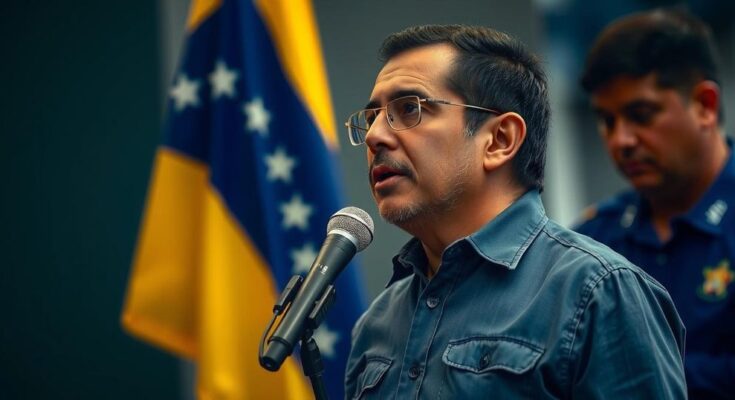The U.S. recognized Edmundo Gonzalez as “president-elect” of Venezuela, following a disputed election in July where Maduro was declared the winner. Gonzales claimed to have garnered more votes than Maduro, but transparency in the electoral process remains contentious. International response to the election reflects widespread skepticism of Maduro’s legitimacy as president.
The United States has officially recognized Edmundo Gonzalez, an opposition candidate, as the “president-elect” of Venezuela months following the controversial election in July, where President Nicolas Maduro was declared the winner. U.S. Secretary of State Antony Blinken reaffirmed Gonzalez’s electoral position while demanding respect for the electorate’s wishes. Although the Biden administration believes Gonzalez received more votes than Maduro, it has refrained from officially recognizing his presidency due to ongoing disputes about the election results. Citing concerns of electoral integrity, Venezuelan authorities led by Maduro have faced criticism for their handling of the election, particularly from international bodies and governments. Critics have pointed out that detailed vote counts were not released, leading to widespread skepticism and claims of manipulation. Gonzalez, supported by opposition leaders, alleges that his coalition’s tallies indicate he had twice the votes of Maduro, a claim backed by analysis from international observers, although these observers did not thoroughly validate the opposition’s stance. Gonzalez has expressed gratitude for the U.S. recognition and underscored the significance of this acknowledgment for Venezuelans seeking change. However, the Venezuelan Foreign Minister criticized U.S. actions, asserting the need for the U.S. to reflect on its governance failures rather than meddle in Venezuelan affairs. The backdrop to these developments includes calls from various governments for transparency in Venezuela’s electoral processes, which Maduro has consistently ignored. In a recent shift, Colombian President Gustavo Petro, previously supportive of the elections, described the vote as a “mistake,” reflecting growing discontent within allied nations over Maduro’s governance. As Venezuela approaches its next presidential term, which begins on January 10, with Maduro’s party reinforcing his impending inauguration, the outlook for political change remains uncertain.
The situation surrounding Venezuela’s political leadership has been fraught with tension and allegations of electoral misconduct. The July 28 election, wherein President Nicolas Maduro claimed victory, has been widely disputed, leading to international scrutiny and accusations of non-transparency. The recognition of Edmundo Gonzalez by the U.S. reflects broader international concerns regarding democratic practices in Venezuela and represents a significant challenge to Maduro’s legitimacy ahead of the upcoming presidential term.
In conclusion, the recognition of Edmundo Gonzalez by the United States as Venezuela’s “president-elect” highlights the deepening political crisis in the country, marked by electoral disputes and a lack of transparency. Despite claims of victory from Gonzalez and significant international criticism of Maduro’s regime, the current government remains entrenched, with preparations underway for a new presidential term. The evolving dynamics among regional allies and the international community may play a critical role in shaping Venezuela’s future political landscape.
Original Source: www.voanews.com




